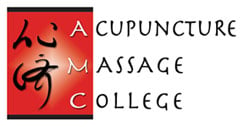Adding the relaxation response, a stress management approach, to other lifestyle interventions may significantly improve treatment of systolic hypertension in the elderly. In a study conducted at the Massachusetts General Hospital (MGH)
Hypertension Program and the Benson-Henry Institute for Mind-Body Medicine at MGH, participants who received relaxation response training in addition to advice on reducing lifestyle risk factors were more than twice as likely to eliminate at least one blood pressure medication than were those receiving lifestyle counseling only. The study appears in the Journal of Alternative and Complementary Medicine.
“Although we have many medications to lower blood pressure, only about a third of patients achieve adequate control of their pressures,” says Randall Zusman, M.D., co-senior author of the report. “If a practice that takes only 15 to 20 minutes a day can help decrease patients’ dependence on antihypertensive medications—reducing often unpleasant side effects and the considerable costs of these drugs—we could not only improve their quality of life but lower direct and indirect health costs.”
Among the elderly patients in whom it is most common, isolated systolic hypertension (an increase in only the peak arterial pressure), is more closely correlated with adverse events like heart attack and stroke than is elevated diastolic pressure.
The relaxation response is a physiologic state of deep rest that can be elicited by practices such as meditation, deep breathing and prayer. While several studies have shown that the relaxation response can help alleviate hypertension involving elevated systolic and diastolic pressures, its usefulness in treated isolated systolic hypertension has not been investigated.
The present study enrolled more than 100 patients, aged 55 and older, whose systolic pressure remained elevated despite their taking two or more antihypertensive drugs. Participants were randomly assigned to two groups. The control group received weekly counseling sessions on cardiac risk factors, the impact of stress on hypertension and recommendations on dietary and fitness goals. The treatment group attended sessions that also included instruction and practice eliciting the relaxation response.
By the end of the 20-week study period, participants in both groups had experienced a significant drop in systolic blood pressure, allowing two thirds of all participants to attempt medication reduction. Among relaxation response group participants, 32 percent maintained reduced systolic pressure after eliminating one or more medications, compared to only 14 percent in the control group.
In addition to other stress management techniques, acupuncture offers stress reducing effects. Acupuncture treats the root cause while balancing the body’s systems. Individuals often feel more relaxed and notice symptom improvement after the first acupuncture treatment. Acupuncture has several beneficial physiological effects that counteract stress including lowered BP, decreased heart rate, tissue regeneration, and increased energy.
Acupuncture is also an effective complementary modality for essential hypertension for both prevention and treatment. Anti-hypertensive effects of acupuncture are best for treatment of mild or first stage hypertension. Acupuncture works through regulation of the nervous and endocrine systems. Therapy activates central endorphin pathways that elicit decreases in sympathetic nerve activity and blood pressure.
For information about acupuncture for the treatment of stress- and hypertension-related health conditions call Dr. Richard Browne, Acupuncture Physician at (305) 595-9500. For information about Acupuncture & Massage College’s Oriental Medicine and Massage Therapy programs ask for Joe Calareso.

 (305) 595-9500
(305) 595-9500






